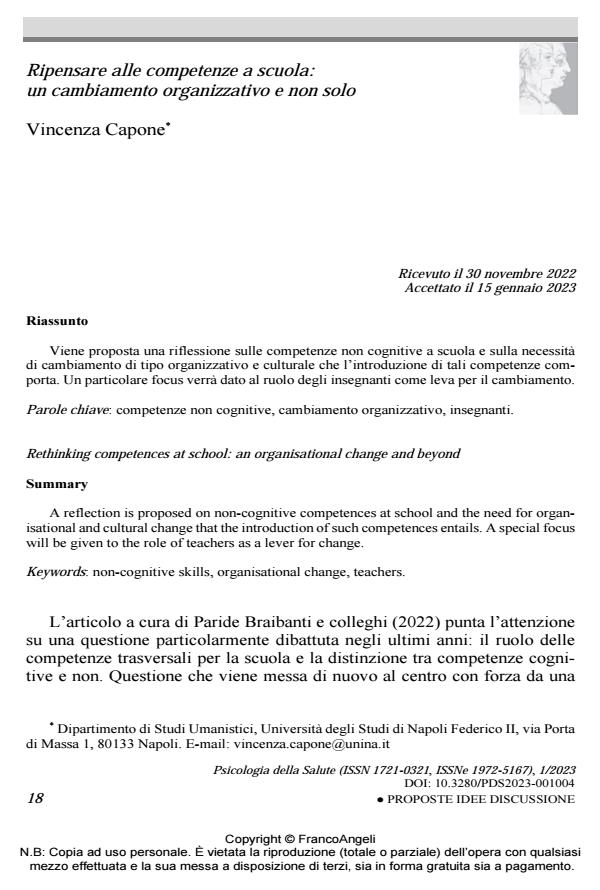Rethinking competences at school: an organisational change and beyond
Journal title PSICOLOGIA DELLA SALUTE
Author/s Vincenza Capone
Publishing Year 2023 Issue 2023/1
Language Italian Pages 6 P. 18-23 File size 181 KB
DOI 10.3280/PDS2023-001004
DOI is like a bar code for intellectual property: to have more infomation
click here
Below, you can see the article first page
If you want to buy this article in PDF format, you can do it, following the instructions to buy download credits

FrancoAngeli is member of Publishers International Linking Association, Inc (PILA), a not-for-profit association which run the CrossRef service enabling links to and from online scholarly content.
A reflection is proposed on non-cognitive competences at school and the need for organisational and cultural change that the introduc-tion of such competences entails. A special focus will be given to the role of teachers as a lever for change.
Keywords: non-cognitive skills, organisational change, teachers.
Vincenza Capone, Ripensare alle competenze a scuola: un cambiamento organizzativo e non solo in "PSICOLOGIA DELLA SALUTE" 1/2023, pp 18-23, DOI: 10.3280/PDS2023-001004